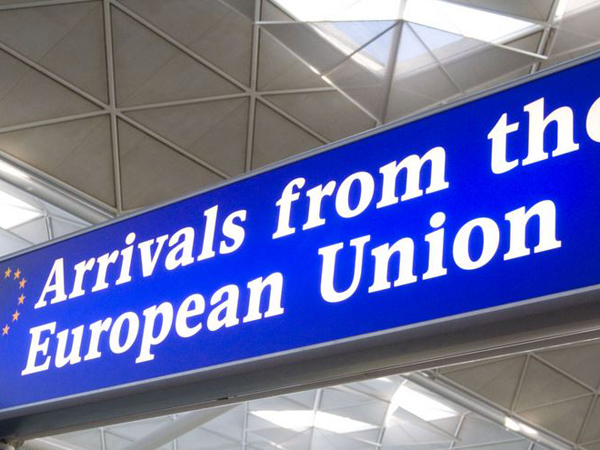
For Rachel Reeves, immigration from the EU has caused a “slight drag” on wages. So Labour best represents the working poor by calling for an end to free movement. This is both simplistic and wrong. It represents only the loosest grasp of political strategy and no grasp of economics at all.
Labour will never win the fight to be “tough on immigration”. If voters want to kick out immigrants, they’ll vote for the parties that have been dog whistling about immigration for years. No one buys the cheap knock off when they can get the real thing for the same price. Labour must address the real causes of the low wage crisis. This strategy has two advantages: It targets voters that might actually vote Labour, and it’s not economically illiterate.
The overall impact of immigration on wages is generally positive. By contributing more in taxes than they take out, EU immigrants ease financial pressures in the public sector. Immigration can create downward pressure on the wages of low-skilled workers. But this is negligible. Reeves relies on a study that found a 10% increase in immigration creates a 1.8% drag on low-skilled wages. To put that in perspective: the largest increase in immigration since 2006 has been around 7%. This works out as costing low skilled workers 1p per hour.
But immigration is equally likely to have a positive effect on low-skilled wages. Migration increases demand: The more people in an economy, the more goods and services they need: The more goods and services required, the greater the demand for labour to provide them: The greater the demand for labour, the more employers are prepared to pay for it.
But this hasn’t happened in the UK: Why?
Because successive governments have chosen policies that drive down wages.
Austerity
Austerity creates unemployment. This increases the supply of labour so employers don’t need to pay as much for it. Every cut to public services means more individuals out of work. Every time a library is closed, a hospital lays off staff, or a council can no longer to afford to provide basic services, the number of unemployed people grows. Austerity also drives down consumer confidence: we’re worried about losing our jobs so we cut back on spending. When the private sector isn’t benefitting from our spending, it can’t support as many workers: more people are unemployed. Those who still have jobs are so scared about being replaced that they don’t ask for the raises they deserve.
Austerity led to a massive expansion in part time workers who can, and would like to, work full time (“part time for economic reasons”, PTER). A 1% increase PTER creates a 0.4% drag on wages. For comparison, a 1% increase in immigration creates a 0.2% drag: The impact of immigration on wages is half that of PTER. In 2013 18% of the UK workforce was classed as PTER.
Anti-union laws
When workers are represented by strong, democratic trade unions, they have greater bargaining power against employers. The voice of the majority of the workforce has more impact than the voice of a single employee. This means that strong trade unions are able to negotiate higher wages for workers. Workers (like tube drivers), that still have strong trade union representation, consequently enjoy comparatively high wages. Unions are particularly important for low-skilled workers. High skilled workers are difficult to replace, so they have other sources of bargaining power. Low-skilled workers are easy to replace, their only chance of a good deal is to work together through their union.
Since the 1980s, governments have legislated to reduce the effectiveness of unions. They have made it harder to strike, harder to recruit new members, and harder to provide day to day representation for current members. This has decreased the bargaining power of the workers in most industries. There is no consensus among economists that unions slow economic growth. But there is clear evidence that they drive up wages for low-skilled workers.
Anti-worker labour market policies
After the Second World War both Labour and Conservative governments sought to ensure that the unemployment never rose above 3%. That was abandoned in the 1980s. Since then, successive governments have permitted employers to exploit employees. Despite much talk, they have failed to regulate zero-hours contracts. The minimum wage has not been raised in line with inflation since 2009. These both drive down wages.
Governments have embraced trade with states that have little or no respect for workers’ or human rights. When industry can operate in states where it can pay starvation wages, employ children, and not worry about workers getting injured, there is little incentive to pay higher wages in the UK. Low-skilled British workers are competing in a race they can never win.
The low-wage crisis is the fault of governments, not immigrants. Labour can win the votes of low skilled workers by addressing real problems with real solutions. But policy must be based on economic reality, not tabloid fantasy.
Sam Fowles is a researcher in International Law and Politics at Queen Mary, University of London and the University of Sydney, and a spokesperson for Another Europe Is Possible. He blogs for the Huffington Post and tweets at @SamFowles. This article first appeared at Labour Uncut.
23rd September 2016
